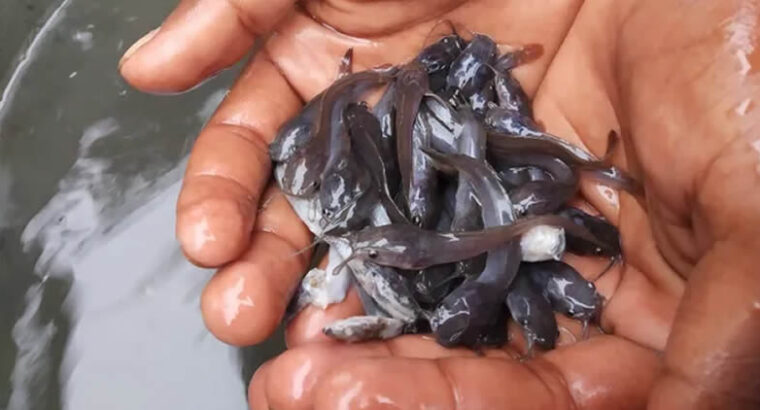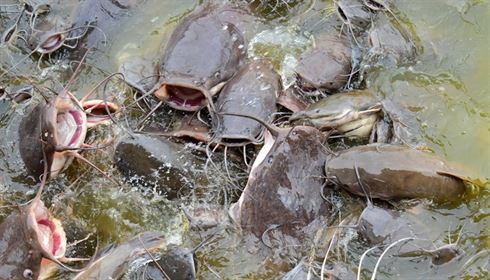Fish Farming in Nigeria: A Lucrative Agribusiness Opportunity

Nigeria, with its vast water resources, favorable climatic conditions, and increasing demand for fish, presents an excellent opportunity for fish farming. Fish farming, also known as aquaculture, involves the breeding, rearing, and harvesting of fish in controlled environments. It has become a profitable venture due to the high consumption rate of fish in Nigeria and the government’s support for agricultural development.
This guide explores fish farming in Nigeria as a lucrative agribusiness opportunity, offering a step-by-step guide, a detailed review, and an income analysis for prospective investors.
1. Understanding Fish Farming in Nigeria
1.1 Why Invest in Fish Farming?
- High Demand: Nigeria has a population of over 200 million people, creating a high demand for fish as a primary protein source.
- Profitability: The cost of production is relatively low, while profit margins are high.
- Government Support: Several government policies and programs support fish farming.
- Job Creation: Fish farming generates employment in both rural and urban areas.
1.2 Types of Fish Farming
- Pond Culture: Uses artificial or natural ponds.
- Cage Culture: Involves raising fish in cages within natural water bodies.
- Tank Culture: Uses tanks for rearing fish in controlled environments.
- Integrated Fish Farming: Combines fish farming with crop or livestock production.
1.3 Most Profitable Fish Species to Farm in Nigeria
- Catfish: The most commonly farmed species, with high market demand.
- Tilapia: Known for its rapid growth and adaptability.
- Clarias Gariepinus: A species of catfish with fast growth rates.
- Heterobranchus spp.: Hybrid catfish with strong disease resistance.
In case if you miss this: How to Make Money from Bamboo Farming in Nigeria: A Step-by-Step Guide
2. Step-by-Step Guide to Starting a Fish Farm in Nigeria
2.1 Step 1: Feasibility Study and Business Plan
- Conduct market research on demand, supply, and pricing.
- Develop a business plan covering capital, expenses, and profit projection.
2.2 Step 2: Secure Land and Water Source
- Select a location with a reliable water supply.
- Consider factors like soil type, water quality, and accessibility.
2.3 Step 3: Construct Fish Ponds or Tanks
- Earthen Ponds: Suitable for large-scale farming.
- Concrete Ponds: More durable and easy to maintain.
- Plastic or Tarpaulin Tanks: Cost-effective for beginners.
2.4 Step 4: Get Quality Fingerlings or Juveniles
- Source from reputable hatcheries.
- Choose fast-growing and disease-resistant species.
2.5 Step 5: Feeding and Nutrition
- Provide high-quality fish feed.
- Adopt a proper feeding schedule to maximize growth.
2.6 Step 6: Pond Management and Water Quality Maintenance
- Ensure proper aeration and water flow.
- Regularly monitor pH, oxygen levels, and ammonia.
2.7 Step 7: Disease Control and Biosecurity
- Identify common fish diseases such as bacterial infections.
- Implement biosecurity measures to prevent disease outbreaks.
2.8 Step 8: Harvesting and Marketing
- Harvest at maturity for maximum profitability.
- Explore different marketing strategies such as wholesale, retail, and export.
3. Review of Fish Farming in Nigeria

3.1 Challenges in Fish Farming
- High Cost of Fish Feed: Feed costs constitute a major portion of production expenses.
- Water Quality Issues: Poor water management can lead to high mortality rates.
- Market Fluctuations: Seasonal variations affect fish prices.
- Inadequate Technical Knowledge: Many farmers lack proper training.
3.2 Government Policies and Support
- Agricultural Development Programs
- Subsidies for fish farmers
- Loans and grants for agribusiness startups
3.3 Success Stories of Fish Farmers in Nigeria
- Case studies of entrepreneurs who built profitable fish farming businesses.
In case if you miss this: How Weather Affects Crop Production: Essential Tips for Farmers
4. Visibility and Income Analysis of Fish Farming in Nigeria
4.1 Cost of Setting Up a Fish Farm
| Expense Item | Estimated Cost (NGN) |
|---|---|
| Land Acquisition | 500,000 – 2,000,000 |
| Pond Construction | 300,000 – 1,500,000 |
| Fingerlings/Juveniles | 50,000 – 200,000 |
| Feed and Maintenance | 200,000 – 1,000,000 |
| Miscellaneous | 100,000 – 500,000 |
| Total Estimated Cost | 1,150,000 – 5,200,000 |
4.2 Profitability and Return on Investment
| Item | Quantity | Price per Unit (NGN) | Total Revenue (NGN) |
|---|---|---|---|
| Catfish (Mature) | 1,000 | 1,500 | 1,500,000 |
| Tilapia (Mature) | 500 | 1,000 | 500,000 |
| Total Revenue | 2,000,000 |
4.3 Strategies for Maximizing Profit
- Reducing feeding costs through alternative feed sources.
- Adding value by processing and packaging fish.
- Expanding market reach through digital marketing and networking.
Frequently Asked Questions (FAQs)
Q1: How much capital is required to start fish farming in Nigeria?
The initial capital required depends on the scale of operation, ranging from NGN 1,000,000 to NGN 5,000,000 for small- to medium-scale farms.
Q2: How long does it take for fish to mature?
Catfish typically take 4-6 months to reach market size, while tilapia takes around 6-8 months.
Q3: What is the best way to market fish?
Selling to local markets, restaurants, supermarkets, and online platforms can increase visibility and sales.
Q4: Is fish farming profitable in Nigeria?
Yes, with proper management, fish farming yields high returns due to the constant demand for fish.
Q5: What are the major risks in fish farming?
Water pollution, diseases, and high feeding costs are some risks that need careful management.
5. Conclusion
Fish farming in Nigeria presents a highly profitable agribusiness opportunity due to its high demand and profitability. With proper planning, investment in quality production techniques, and strategic marketing, fish farming can generate substantial income. While challenges such as feed costs and water management exist, they can be mitigated with the right strategies. Entrepreneurs looking to venture into agribusiness should consider fish farming as a viable and rewarding investment.
Have you considered starting a fish farm, or do you already have experience in fish farming? We would love to hear from you! Share your thoughts, experiences, or questions in the comments below. Your insights can help others looking to enter this exciting and profitable industry!
This comprehensive guide provides everything you need to know about farming in Nigeria, from setting up a farm to maximizing profit. With the right approach, you can build a successful fish farming business and contribute to Nigeria’s food security and economy.

Leave your comment